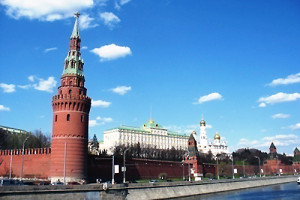Golstein’s Ode To Haxthausen

Subject: Golstein’s ode to Haxthausen
Date: Thu, 9 Mar 2023
From: Parthe, Kathleen <kparthe@ur.rochester.edu>
Professor Golstein’s new attack on negative views of Russia (in the March 9 JRL) uses Baron von Haxthausen as his latest prop. Haxthausen went to Russia with the goal of studying communal institutions, and found them in abundance in the pre-emancipation countryside. From that, Haxthausen generalized a nurturing relationship between tsar and subject, and a benign foreign policy. Like many a traveler to Russia, he knew just enough to draw the wrong conclusions, seeing in Nicholas I not the “gendarme of Europe,” but a someone who displayed no signs of aggression or menace. There are Decembrists, Poles, and thousands of political prisoners who would beg to disagree.
The Marquis de Custine comes in for a smack from Golstein for being “idiotic,” and, what’s worse, the more popular writer, despite the “Russophobic drivel” in Letters from Russia in 1839. In his defense, de Custine, whose father and grandfather were executed during the French Revolution, travelled to Russia to find an aristocratic eden where the monarch’s power ensured calm. He returned as a partisan of representative, constitutional government. The book reads so well 180 years later because of Custine’s ability to describe the atmosphere of a nation where centralized power (vlast’) operates under a veil of secrecy which is dangerous to lift. Not pretending to great expertise in Russia, de Custine ended his book by saying “J’ai mal vu, mais j’ai bien deviné” (I have seen only a little, but I have made some good guesses).
Alexander Herzen, who was critical of superficial views of Russia by foreigners, wrote about de Custine’s book, which he read soon after it was published (and after his own experience in internal political exile): “This is, without a doubt, the liveliest and most intelligent book ever written about Russia by a foreigner . . . . He is able to guess the whole on the basis of just a few examples . . . . This book is not at all hostile to Russia; on the contrary, he studied us with affection . . . . The basis of his view is sound, and it is a view of a frightening society . . . . He sees an insultingly large number of things.” Herzen was honest enough to admire someone who discovered uncomfortable truths. We might try to emulate that.
Kathleen Parthé
Princeton, New Jersey
